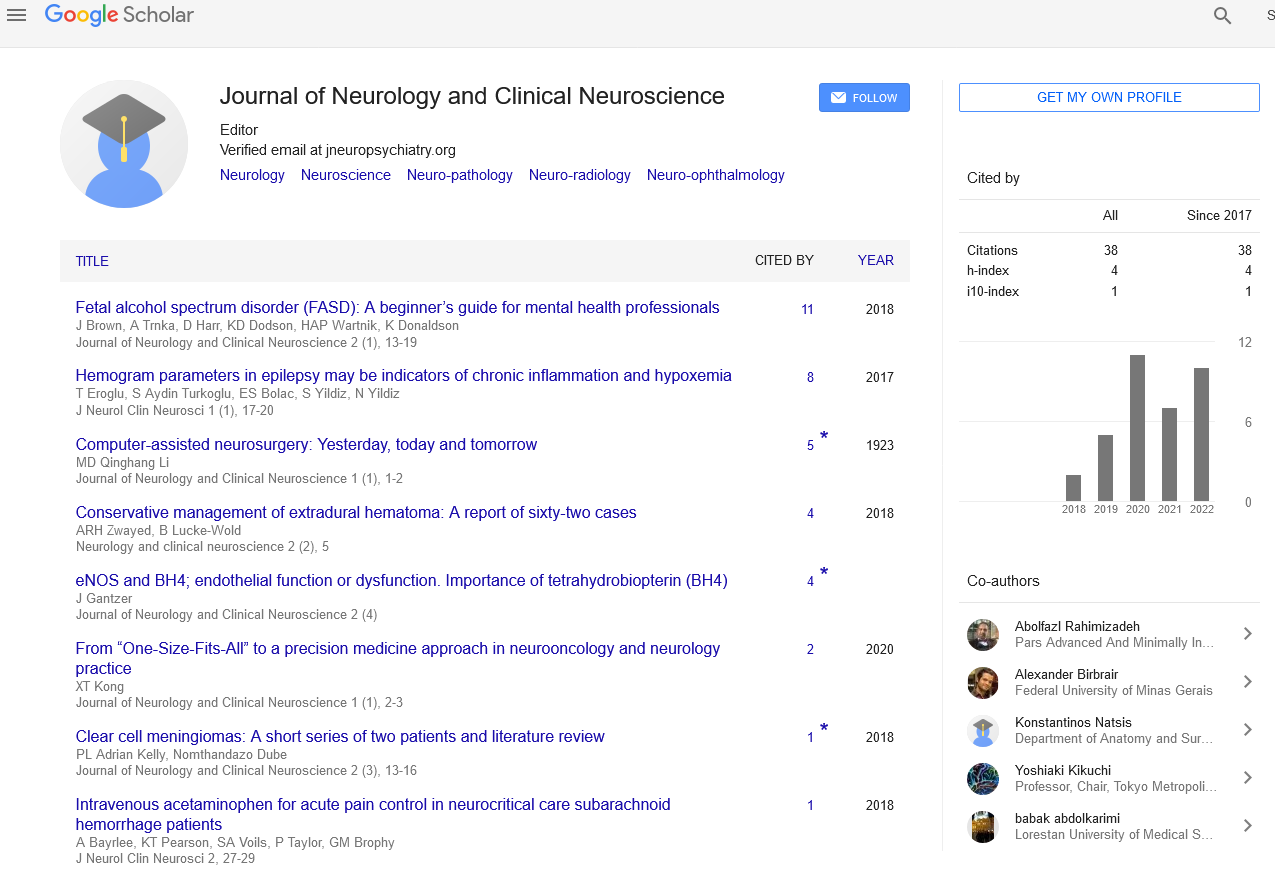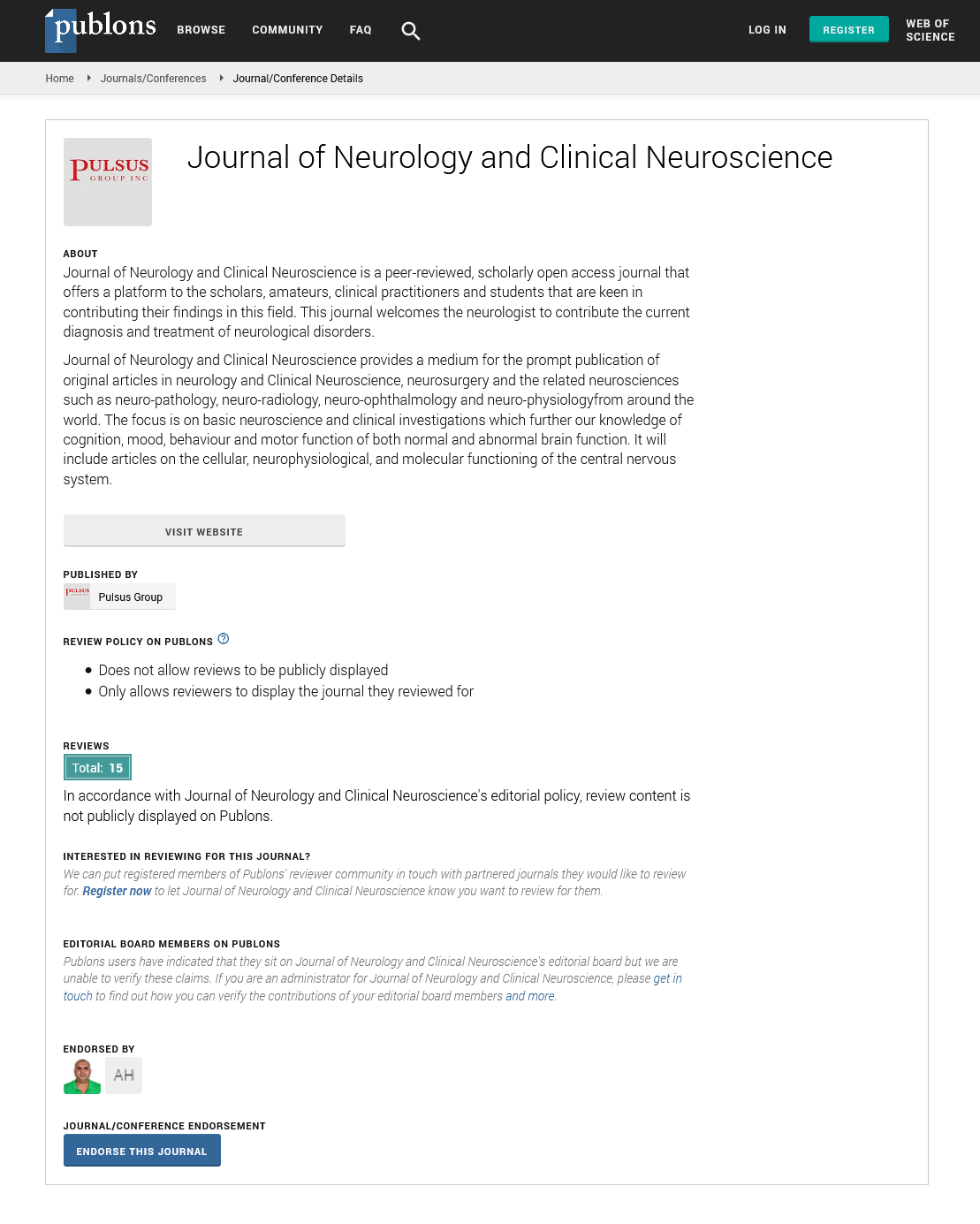Sign up for email alert when new content gets added: Sign up
CD271+ stem cell treatment of patients with Chronic Stroke
Joint Event on 9th International Conference on Parkinsons & Movement Disorders & 10th International Conference on Neurodegenerative Disorders & Stroke
February 10, 2022 | Webinar
Felician Stancioiu, Papadakis G.Z, Lazopoulos G, Spandidos D.A, Tsatsakis A, Floroiu M., and Badiu, C
Bio-Forum Foundation, Romania
ScientificTracks Abstracts: J Neurol Clin Neurosci
Abstract :
Patients with chronic stroke have currently little hope for motor improvement towards regaining independent activities of daily living; stem cell treatments offer a new treatment option and needs to be developed. Patients with chronic stroke (more than 3 months prior to stem cell treatment, mean 21.2 months post stroke) were treated with CD271+ stem cells, 7 patients received autologous and 1 allogeneic cells from first degree relative; administration was intravenous in 1 and intrathecal in 7 patients. Each patient received a single treatment consisting of 2 5x106 cells/kg and they were followed up for up to 12 months. There were significant improvements in expressive aphasia (2/3 patients) spasticity (5/5, of which 2 were transient), and small improvements in motor function (2/8 patients). Although motor improvements were minor in our chronic stroke patients, improvements in aphasia and spasticity were significant and in the context of good safety we are advocating further administration and clinical studies of CD271+ stem cells not only in chronic stroke patients, but also for spastic paresis/plegia; a different, yet unexplored application is pulmonary emphysema.
Biography :
Felician Stancioiu, MD is currently the principal investigator in a clinical study on the use of stem cells in autistic spectrum diseases, and also studying stem cell treatment of patients in neurovegetative state, stroke, ALS, spondylitis, spastic tetraparesis. He started working with hematopoietic stem cells in 1995-1997 worked at Stem Cell Sciences in New York, NY with Prof Niculae Ciobanu and is currently the Medical and Research Director at Fundatia Bio-Forum, Bucharest, Romania and has published original research in Endocrinology, Psycheneuroendocrinology and Neurology.





